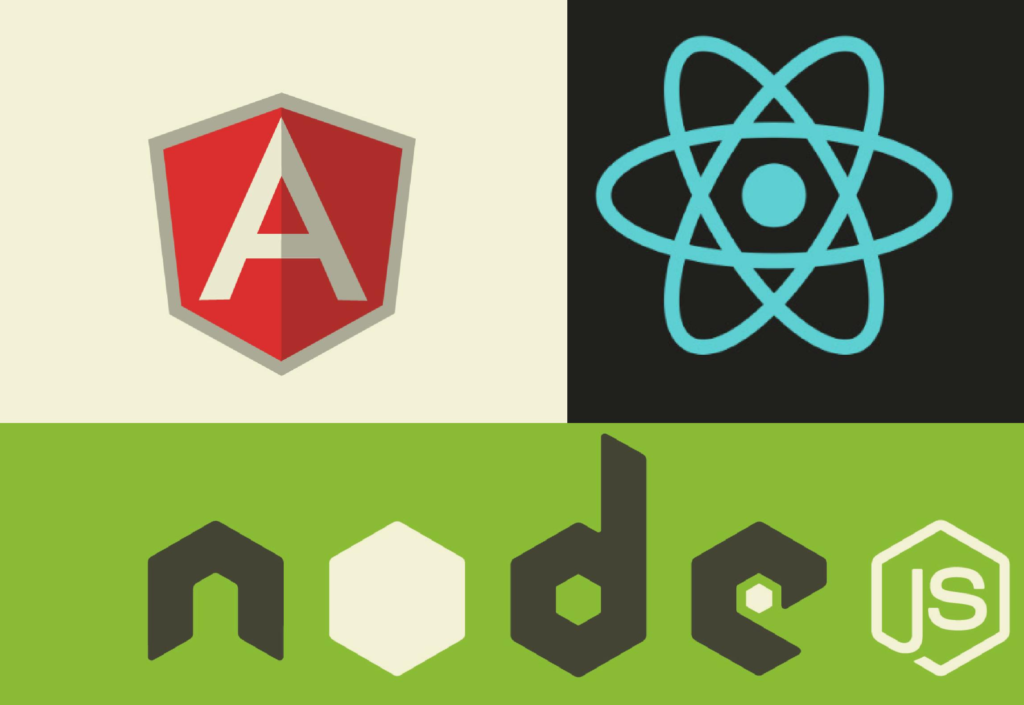Choosing React or Angular is a debating issue raised by many developers. Everybody, from a newcomer and a freelancer to a skilled architect, is trying to understand where to start. Should you need to craft a strategy for your project, you will have to get an experienced opinion. Our experts have conducted a detailed React vs AngularJS (Angular 2+) comparison to save your time.
Which is better, Angular or React?
AngularJS is an open-source JavaScript framework maintained by Google and community which can help developers create single page applications. AngularJS which is built on top of the JavaScript is making the life of developers easy.
React is a UI library developed at Facebook to facilitate the creation of interactive, stateful, and reusable UI components. It is used at Facebook in production. ReactJS is best for rendering complex user interfaces with high performance. The basic fundamental behind React is the concept of virtual DOM. ReactJS effectively uses virtual DOM which can be rendered either at client side or server side and communicate back and forth. The Virtual DOM render subtrees of nodes based upon state changes. React is lighter then Angular, it is filled with the least number of conditions and eliminates the need to use extra elements like plugins. React is against two-way binding, it intentionally stays away from it and makes use of explicit updates instead.
React Vs AngularJS: Features
A lot of developers think that Angular has more divergent features than React. However, we should admit that both stacks have a lot of common features such as data binding, components, cross-platform rendering, etc.
React
React offers the following features:
- No dependency injection;
- Instead of classic templates, it has JSX, an XML-like language built on top of JavaScript;
- XSS protection;
- Utilities for unit-testing components.
Here is a visual aid that will help you evaluate all pros and cons of this stack:
As compared with Angular, React provides not so many features. However, it can be an advantage of this technology as you are able to pick up an additional library if you really need it for your project. Below are the libraries that are used frequently with React:
- React-router for routing;
- Fetch (or axios) for HTTP requests;
- a bunch of techniques for CSS encapsulation;
- Enzyme for additional unit-testing utilities.
The ability to pick up the library that is required by your project allows tailoring your technology to certain specifications of your project.
Angular
Angular offers a bunch of features to build a state-of-the-art product. Below are some of the features Angular can boast about:
- Dependency injection
- Templates, based on an extended version of HTML
- Routing, provided by @angular/router
- Ajax requests by @angular/http
- @angular/forms for building forms
- Component CSS encapsulation
- XSS protection
- Utilities for unit-testing components.
React Vs AngularJS: Paradigms, Languages, and Patterns
Let’s learn what other concepts are characteristic of both technologies.
React
When we start talking about React we can’t but mention Redux, Flow, and JSX.
Redux
Redux, inspired by Flux, was introduced as a library that clearly manages state changes. The core concept of the library is that the entire apps state is represented by one single object modified by reducers which are pure functions realized separately from the components. This facilitates testability and separation of concerns.
Angular
Angular offers some stacks which might be of your interest: TypeScript and RxJS.
TypeScript
TypeScript is an innovative technology introduced by Microsoft and developed on top of JavaScript. It can be used instead of Babel. It is also characterized by a strong typing system which statically analyzes code by using a set of comments and type inference. One more advantage of TypeScript it is very similar to dot net and java so it can be easily learned by developers who had experience with these technologies.
RxJS
RxJS is a library that allows performing divergent operations like filtering, mapping, merging, splitting, etc. It facilitates a continuous stream of values. This library is rather complicated so it will take some time to master it. You will need to know various types of Subjects and Observables to make HTTP requests with RxJS.
Where is RxJS convenient? It can be used for processing a bunch of streams like websockets.
To sum it up, TypeScript is good for enhancing the projects maintainability particularly those with huge code volume or complicated logic. RxJS should be used carefully as it can bring undesired complexity to your work.









